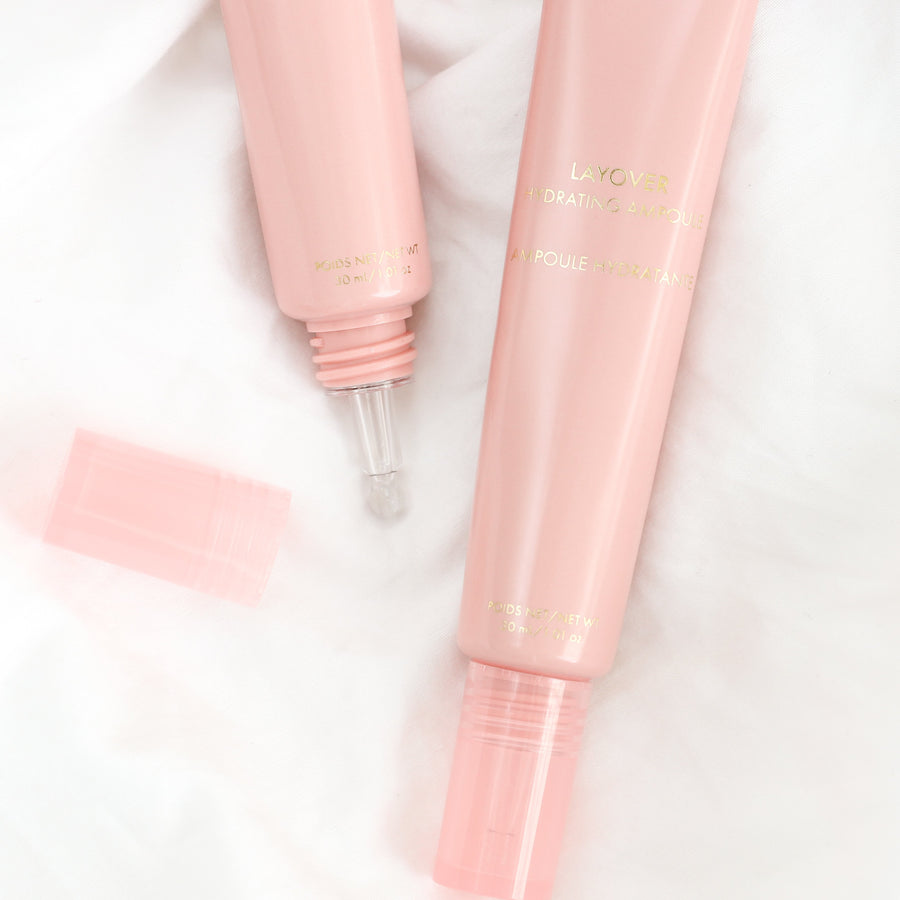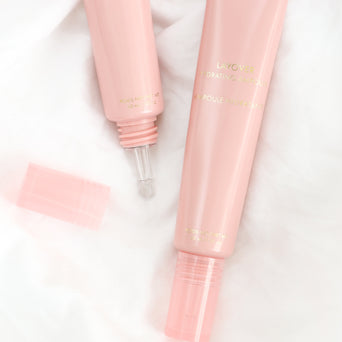Serums vs. Ampoules: What's The Difference and Why You Need One In Your Routine
By Cassidy Best | Jun 20, 2019
The world of layering beauty products is tricky. With so many products, it can be tricky to understand how to use them all! The sheer volume of products at our disposal can feel very overwhelming, and just when you think that you’ve mastered the art of skincare, you learn about a new product and you’re back at the start. That’s how I felt when I first heard about serums and ampoules. I know I’m not the only one feeling this way, so Team Wander is here to help break down the differences between these two formulas.
What is a Serum?
In general, serums contain a few active ingredients that help with a specific skin need. For example, many serums target dark spots or age lines, and the use of that serum has a higher potency than something with a cream texture. Serums are designed to penetrate deep into the skin, and are able to do so through it’s smaller molecule makeup. Further, a serum has a thicker consistency than an ampoule, but each individual serum’s consistency varies. Some have an oil-like texture, while others have a gel-like. In summary, a serum has a light-medium texture and should be used to target a specific skin concern.
What is an Ampoule?
If serums have a concentrated formula, think of an ampoule as a booster shot, or one step further on an intensity scale. They contain even an even higher number of active ingredients than a serum, and if needed, can be used for a finite amount of time. For example, using an ampoule for a month before a big event is a great way to achieve your most radiant skin. Still not sure? Our Layover Hydrating Ampoule is a great place to start. Enriched with the ultimate team of hydrators - hyaluronic acid, beta-glucan, and birch juice, to keep your skin quenched. Because of its high concentration formula, you’ll notice that your skin is visibly brighter and more supple after just one use.<product>1</product>
How Are They Similar?
Serums and ampoules are both major players in Korean skincare. They are both treatment products, designed to target specific skin concerns. Additionally, they are both very concentrated formulas, so they tend to be packaged in smaller bottles, as a little goes a long way. Finally, they both should have a similar placement in your skincare routine. So when do you apply them? As a general rule of thumb, when laying products, begin with the product that is the lightest consistency, and build to the thickest. So in general, serums and ampoules should be applied after a cleanser and before a moisturizing cream.
Our perspective? Try them both! Everyone’s skin is different, and what works for some, may not work for others. Evaluate what you need to reach your #skingoals, and give it the love it deserves. And as always, Team Wander is here to help.
Serums vs. Ampoules: What's The Difference and Why You Need One In Your Routine

The world of layering beauty products is tricky. With so many products, it can be tricky to understand how to use them all! The sheer volume of products at our disposal can feel very overwhelming, and just when you think that you’ve mastered the art of skincare, you learn about a new product and you’re back at the start. That’s how I felt when I first heard about serums and ampoules. I know I’m not the only one feeling this way, so Team Wander is here to help break down the differences between these two formulas.
What is a Serum?
In general, serums contain a few active ingredients that help with a specific skin need. For example, many serums target dark spots or age lines, and the use of that serum has a higher potency than something with a cream texture. Serums are designed to penetrate deep into the skin, and are able to do so through it’s smaller molecule makeup. Further, a serum has a thicker consistency than an ampoule, but each individual serum’s consistency varies. Some have an oil-like texture, while others have a gel-like. In summary, a serum has a light-medium texture and should be used to target a specific skin concern.
What is an Ampoule?
If serums have a concentrated formula, think of an ampoule as a booster shot, or one step further on an intensity scale. They contain even an even higher number of active ingredients than a serum, and if needed, can be used for a finite amount of time. For example, using an ampoule for a month before a big event is a great way to achieve your most radiant skin. Still not sure? Our Layover Hydrating Ampoule is a great place to start. Enriched with the ultimate team of hydrators - hyaluronic acid, beta-glucan, and birch juice, to keep your skin quenched. Because of its high concentration formula, you’ll notice that your skin is visibly brighter and more supple after just one use.<product>1</product>
How Are They Similar?
Serums and ampoules are both major players in Korean skincare. They are both treatment products, designed to target specific skin concerns. Additionally, they are both very concentrated formulas, so they tend to be packaged in smaller bottles, as a little goes a long way. Finally, they both should have a similar placement in your skincare routine. So when do you apply them? As a general rule of thumb, when laying products, begin with the product that is the lightest consistency, and build to the thickest. So in general, serums and ampoules should be applied after a cleanser and before a moisturizing cream.
Our perspective? Try them both! Everyone’s skin is different, and what works for some, may not work for others. Evaluate what you need to reach your #skingoals, and give it the love it deserves. And as always, Team Wander is here to help.


